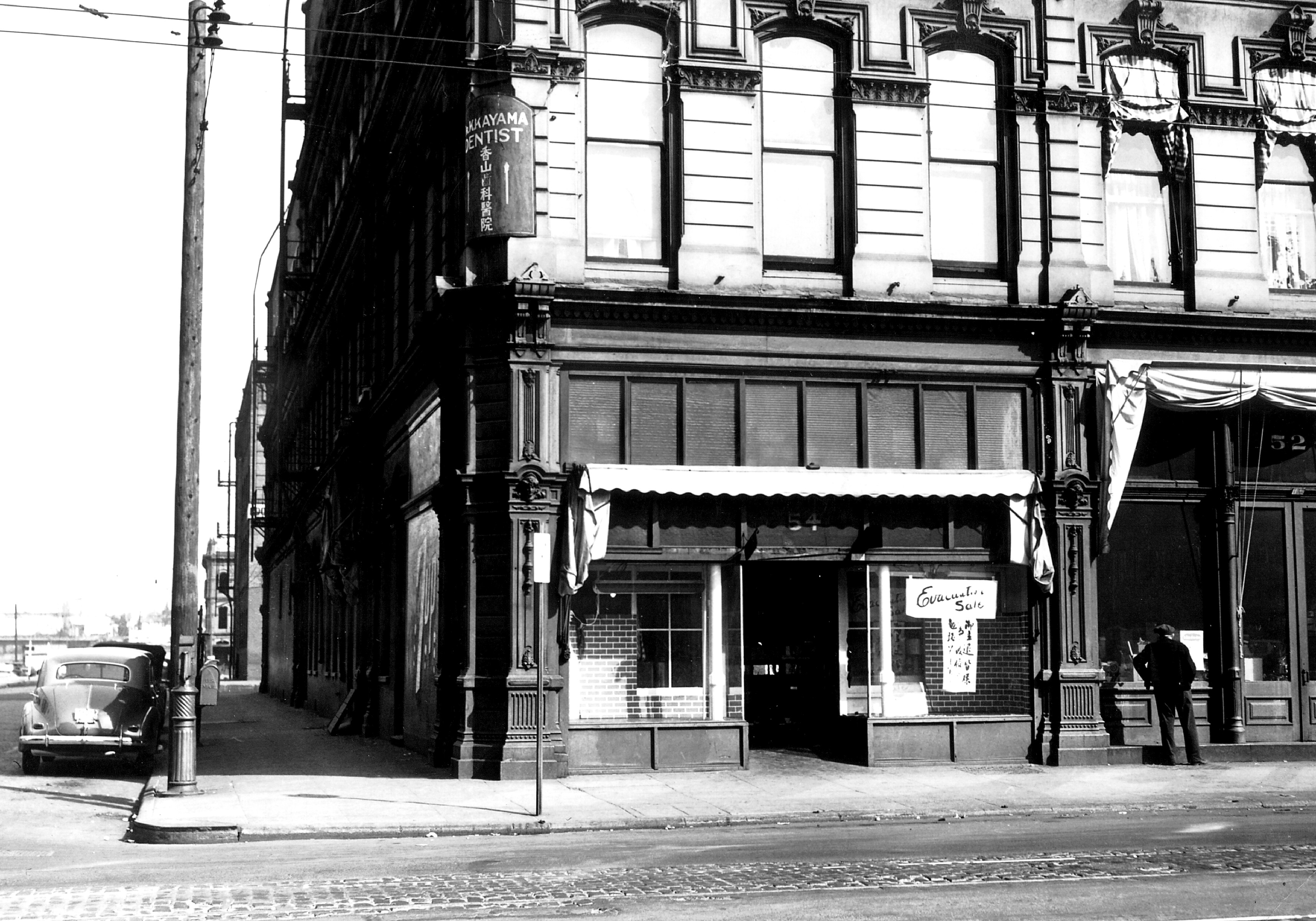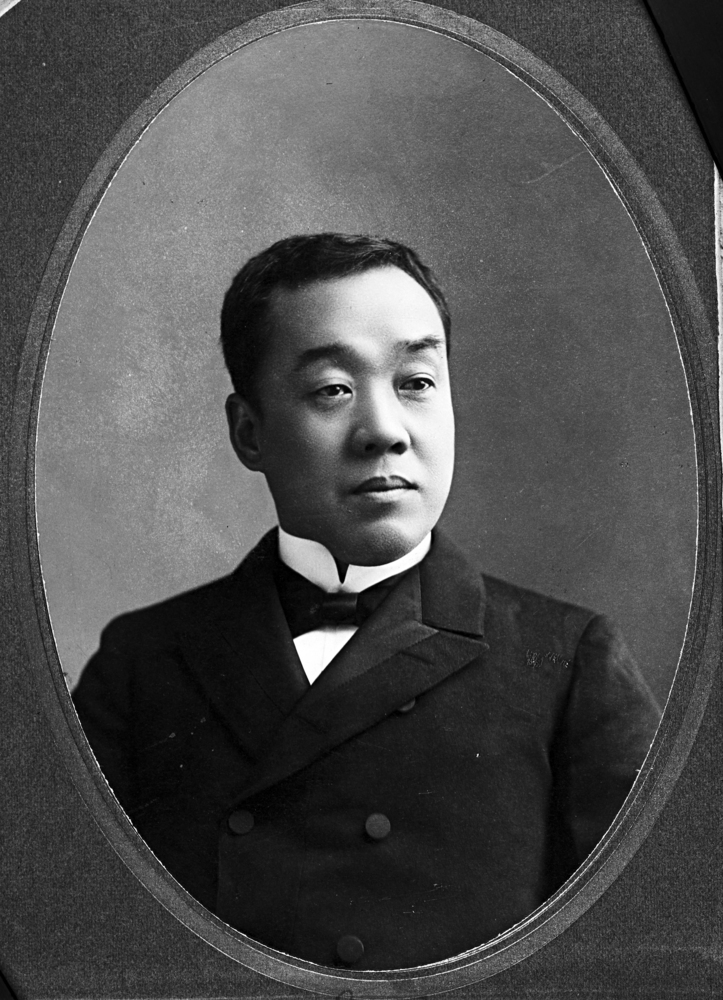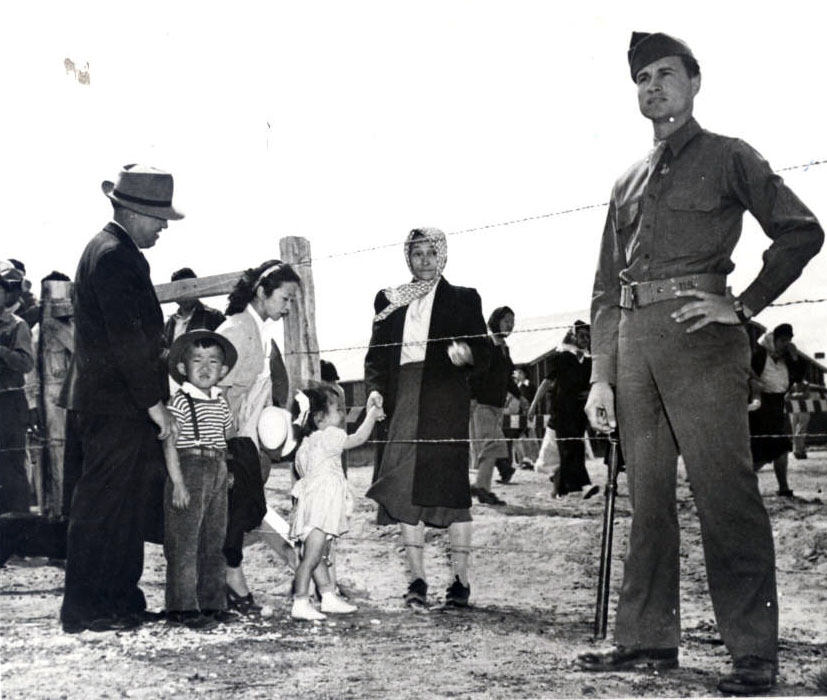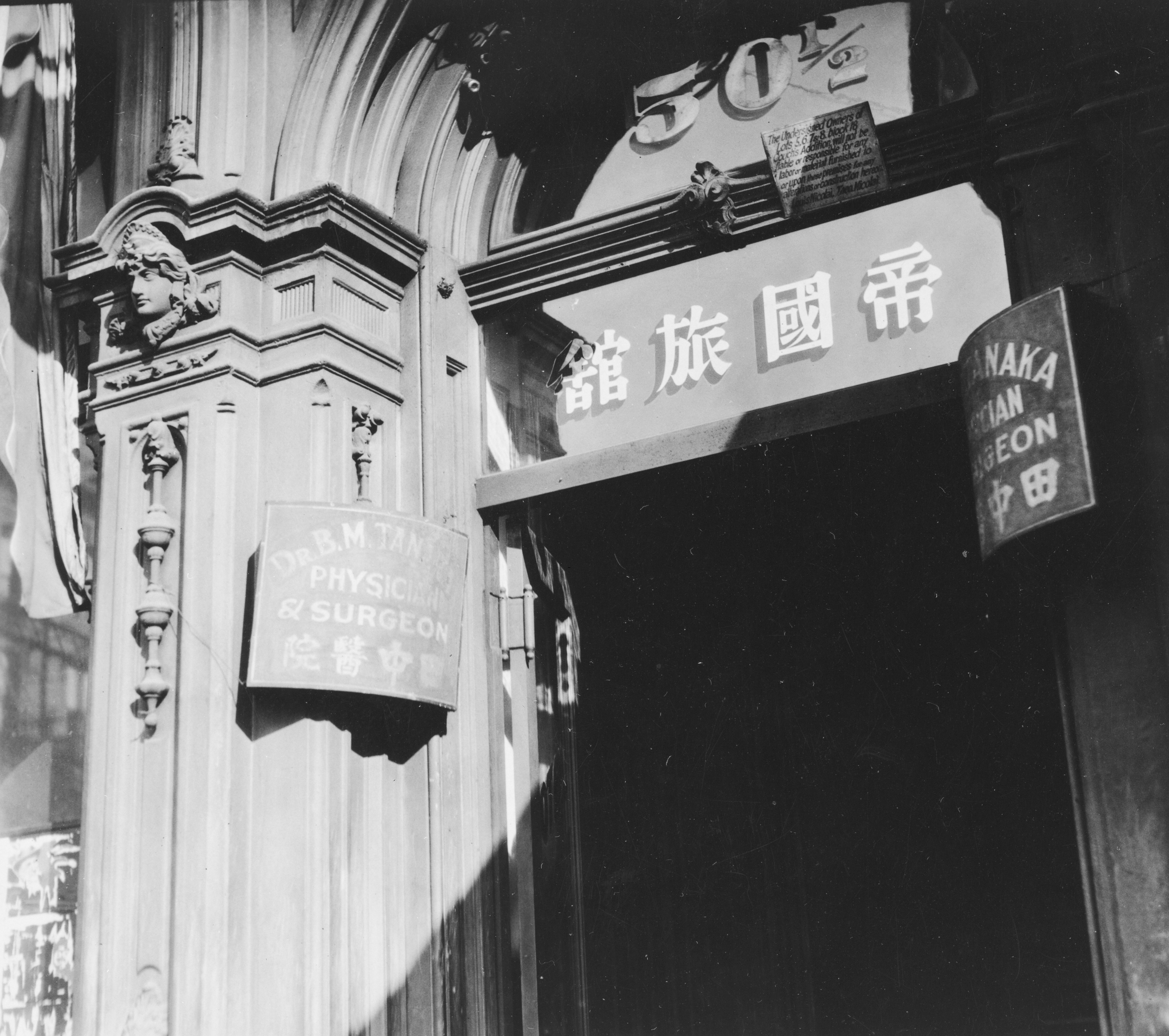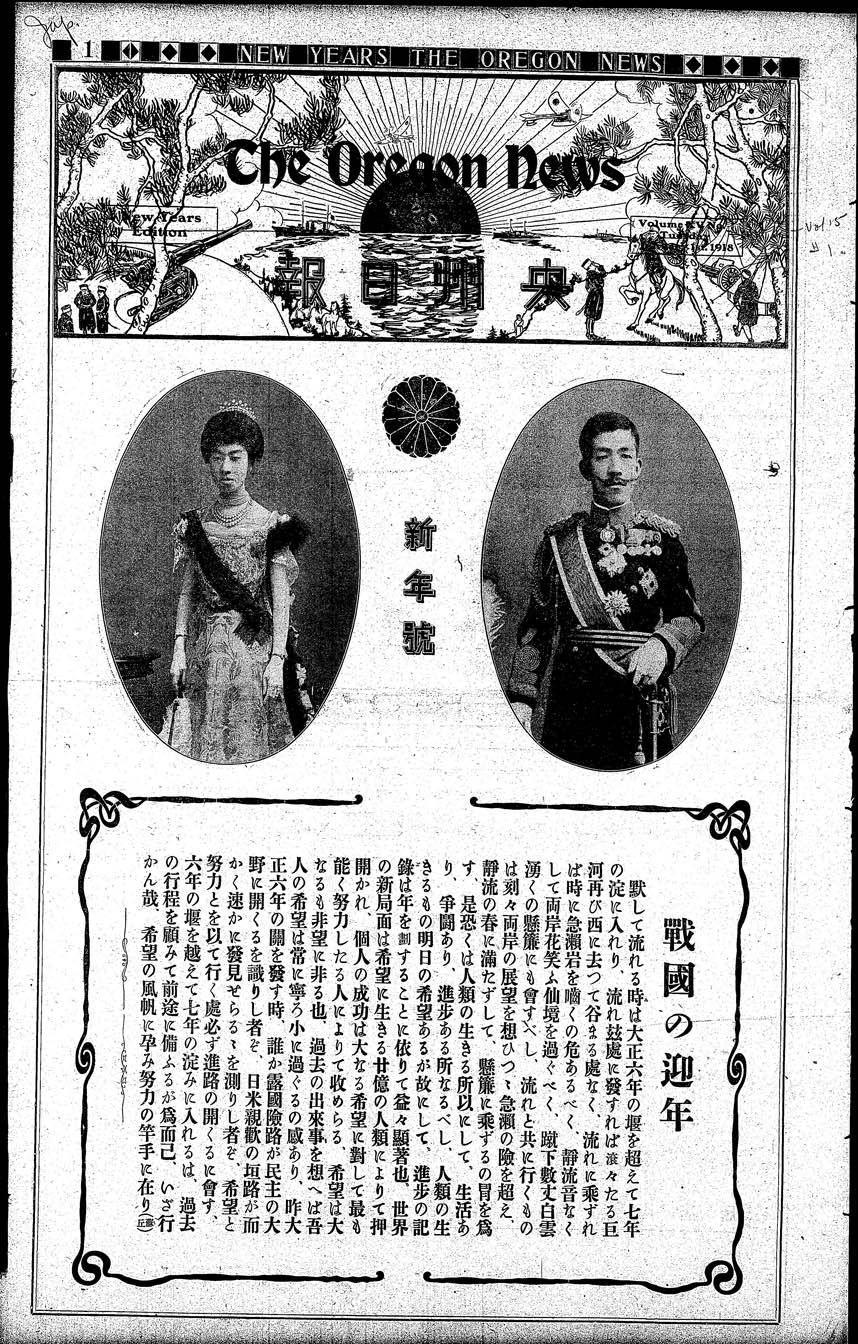Anzen was Portland’s oldest Japanese grocery and gift shop, first in Nihonmachi (also known as Japantown) and then on the east side of the Willamette River on Northeast Union Avenue. Opened at the turn of the twentieth century by Mosaburo Matsushima (1869–1940), a Japanese immigrant from Okayama, Anzen sold supplies to Japanese laborers. By the time the shop closed 109 years later, it had become a destination for Asian Portlanders and others interested in Asian food and culture.
Mosaburo Matsushima opened his first store in Portland in 1905, naming it Matsushima Shoten (shoten means bookshop in Japanese). Located at Northwest Davis and Third Avenue in Nihonmachi (present-day Old Town/Chinatown), the store was near Oshu Nippo (the Oregon Daily News), Matsubu Bath and Laundry, and the dental office of Dr. Kei Koyama. By then, Matsushima’s wife, Haru, had joined him; their son Ayao stayed behind in Japan with an uncle.
By 1911, Matsushima had changed the name of the shop to the Teikoku Company (teikoku means empire in Japanese), and he sold merchandise that included canned goods from Japan, Stetson hats, caulk boots (spike-soled boots worn by loggers), Florsheim shoes, and Arrow shirts. Teikoku Company also served as an agent for a Yokohama bank, which allowed customers to transfer their earnings to their families in Japan and find work with the railroad. As Portland’s Japanese population grew, the store expanded and began to sell radios, refrigerators, and even Studebaker trucks.
Matsushima adopted a young relative, fifteen-year-old Umata Yasui, who arrived in Oregon in 1914 to work on the railroad. Matsushima traveled to Japan to find a wife for him, returning with a niece, Fumi Matsushima (1909–1977). The couple was married in 1924. Umata Yasui Matsushima managed the store in partnership with Mosaburo and his son Ayao, who arrived from Japan in 1919 and married Miyo Matsushima (sometimes listed as Niyoko), who clerked in the store. The family lived in and managed the Merchant Hotel, the building above the Teikoku Company, which served as a roominghouse primarily for immigrant residents. The building still stands and is on the Portland Historic Resource Inventory.
Umata took over the shop after Mosaburo and Huru returned to Japan in about 1940. (Ayao and his family also seemed to have returned to Japan, but maintained a stake in Teikoku.) In addition to running the store, Umata traveled to canneries and lumber camps from Astoria to Spokane, delivering supplies to Japanese laborers and taking orders for merchandise. He was often entrusted with gold that workers wanted sent to their families in Japan, hiding the gold in his hat while traveling.
After the Japanese attack on Pearl Harbor on December 7, 1941, the City of Portland closed all Japanese businesses, revoked business licenses, and froze bank accounts. The FBI had been working with the Office of Naval Intelligence since 1938 to create a list of those who would be detained in the event of a war against the Axis Forces (Nazi Germany, the Kingdom of Italy, and the Empire of Japan), and all Issei (first-generation immigrants from Japan) businessmen and community leaders were considered a threat to national security.
Umata Matsushima, a prominent member of the Japanese Association of Oregon, was among many Japanese leaders tracked by the FBI. Arrested on December 11, 1941, he was first sent to Department of Justice detention centers in Missoula, Montana, then to Livingston, Louisiana, and finally to Santa Fe, New Mexico. The City of Portland ordered that Teikoku Company be closed and the inventory liquidated, at pennies on the dollar. Umata's wife, Fumi Matsushima, and his two sons—nine-year-old Yoji (1933–2023) and three-year old Hiroshi (1939–2017)—were sent to the Portland Detention Center and then to the Minidoka War Location Center, a concentration camp in Idaho.
Umata was imprisoned at the Department of Justice Camp in Livingston, Louisiana. While there, he applied to return to Japan as part of a prisoner-of-war exchange and was sent to Ellis Island in New York City in preparation for repatriation. The U.S. government sent his family to join him there, but the arrangement fell through because of a miscount of the prisoner exchange numbers. The family eventually was assigned to the Department of Justice prison camp in Crystal City, Texas, where they were finally united after being separated for twenty-one months.
In April 1946, after being released from Crystal City, the Matsushima family returned to Portland, where they borrowed $500 from friends so they could open a new store at 211 Northwest Davis Street. The federal government would not allow Matsushima to retain Teikoku as the name of the store because it meant “imperial,” a reference to the defeated rulers of Japan, so he changed the name to Anzen, which means “safety.”
In the years after World War II, imported goods from Japan were scarce, and Anzen began sourcing food from within the United States, selling rice from California and Arkansas, shoyu (soy sauce) from San Francisco, rice crackers from Los Angeles, and miso from Salt Lake City. Because of poor conditions in Japan, customers purchased supplies that Anzen would then send to their relatives in Japan—care packages that contained coffee, sugar, canned butter, powdered milk, and Spam, as well as medical supplies.
Umata Matsushima moved Anzen to Northeast 736 Union Avenue (now Martin Luther King Jr. Boulevard) in 1968, and Yoji and Hiroshi managed the business, which flourished. Anzen became the place to find all-things-Asian: rice, poi, sushi, Japanese sake, Japanese packaged drugs, pottery, footwear, martial arts supplies, bedding, and Asian books, novels, and magazines. It was a friendly place that served the Japanese American community and those interested in Japanese food and culture.
Yoji retired from the business in 2000. On September 30, 2014, after 109 years in business, Hiroshi Matsushima, now Anzen's owner, retired and closed the oldest Japanese grocery and gift shop in Portland.
-
![]()
Interior of Teikoku store, Portland, 1902.
Courtesy Yoji Matsushima, Japanese American Museum of Oregon -
![]()
Teikoku store with "Evacuation sale" advertised in the window, c.1942.
Courtesy Matsushima Family, Japanese American Museum of Oregon -
![]()
Umata Matsushima standing infront of Anzen store, c.1945.
Courtesy Matsushima Family, Japanese American Museum of Oregon
Related Entries
-
![Japanese Americans in Oregon]()
Japanese Americans in Oregon
Immigrants from the West Resting in the shade of the Gresham Pioneer C…
-
![Japanese American Wartime Incarceration in Oregon]()
Japanese American Wartime Incarceration in Oregon
Masuo Yasui, together with many members of Hood River’s Japanese commun…
-
![Japantown, Portland (Nihonmachi)]()
Japantown, Portland (Nihonmachi)
Portland's Japantown, or Nihonmachi, is popularly described as having e…
-
![Oshu Nippo]()
Oshu Nippo
For early Japanese immigrants to Oregon, a Japanese-language newspaper …
-
![Ota Tofu]()
Ota Tofu
Ota Tofu, a small storefront in Portland’s east side, is a cultural and…
-
![Shinzaburo Ban (1854-1926)]()
Shinzaburo Ban (1854-1926)
Shinzaburo Ban was a Japanese businessman who was instrumental in bring…
Related Historical Records
Map This on the Oregon History WayFinder
The Oregon History Wayfinder is an interactive map that identifies significant places, people, and events in Oregon history.


